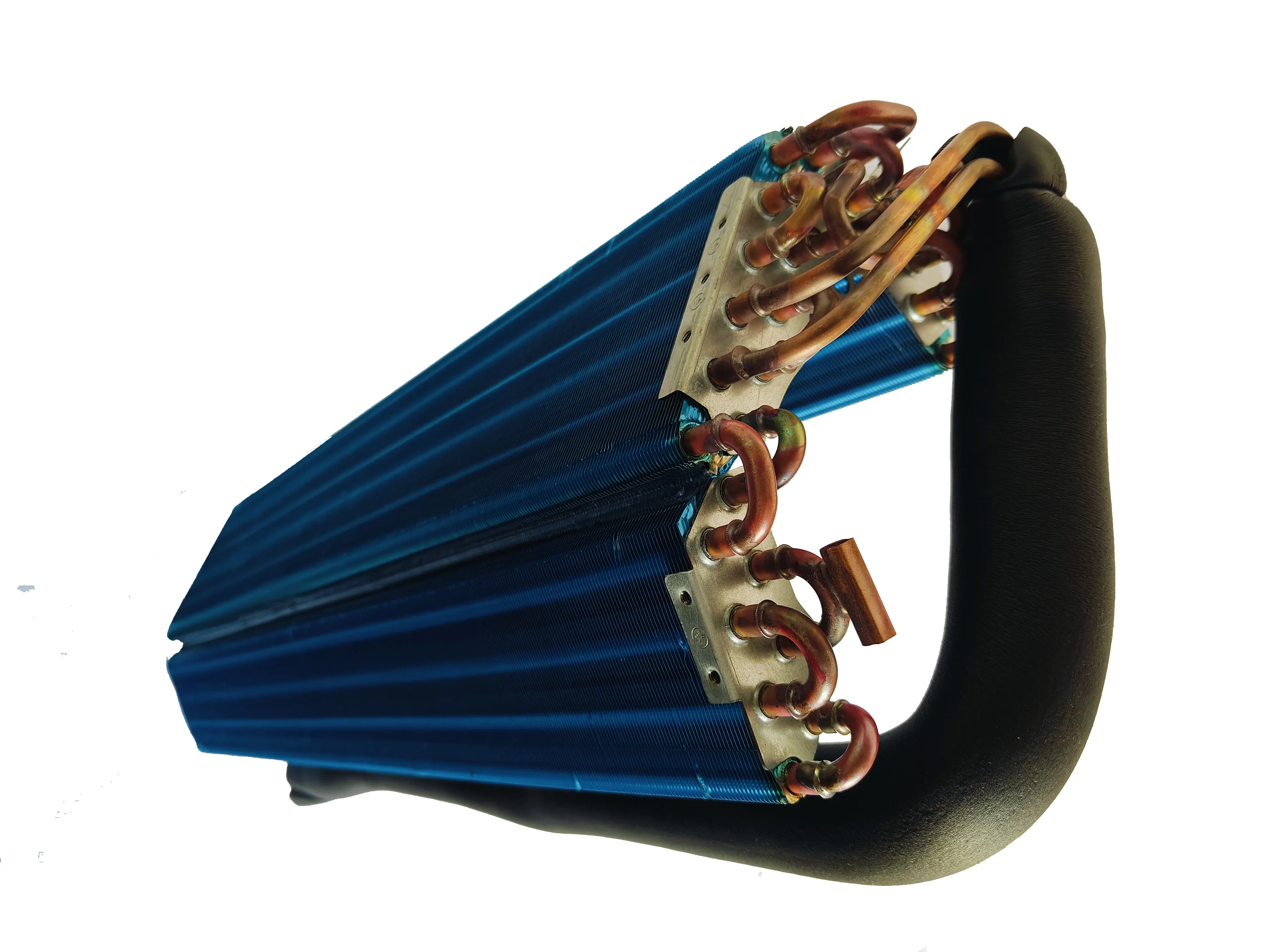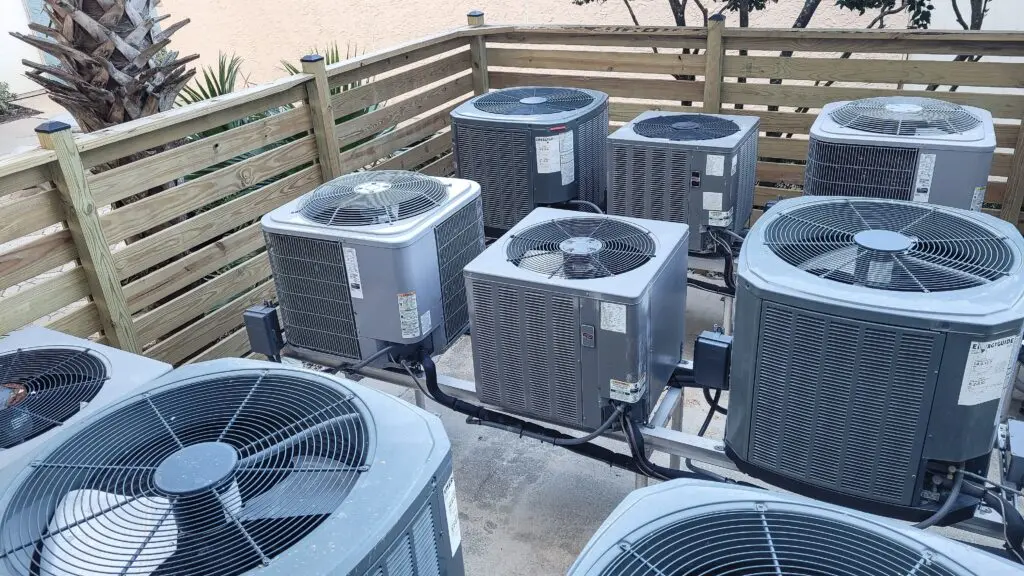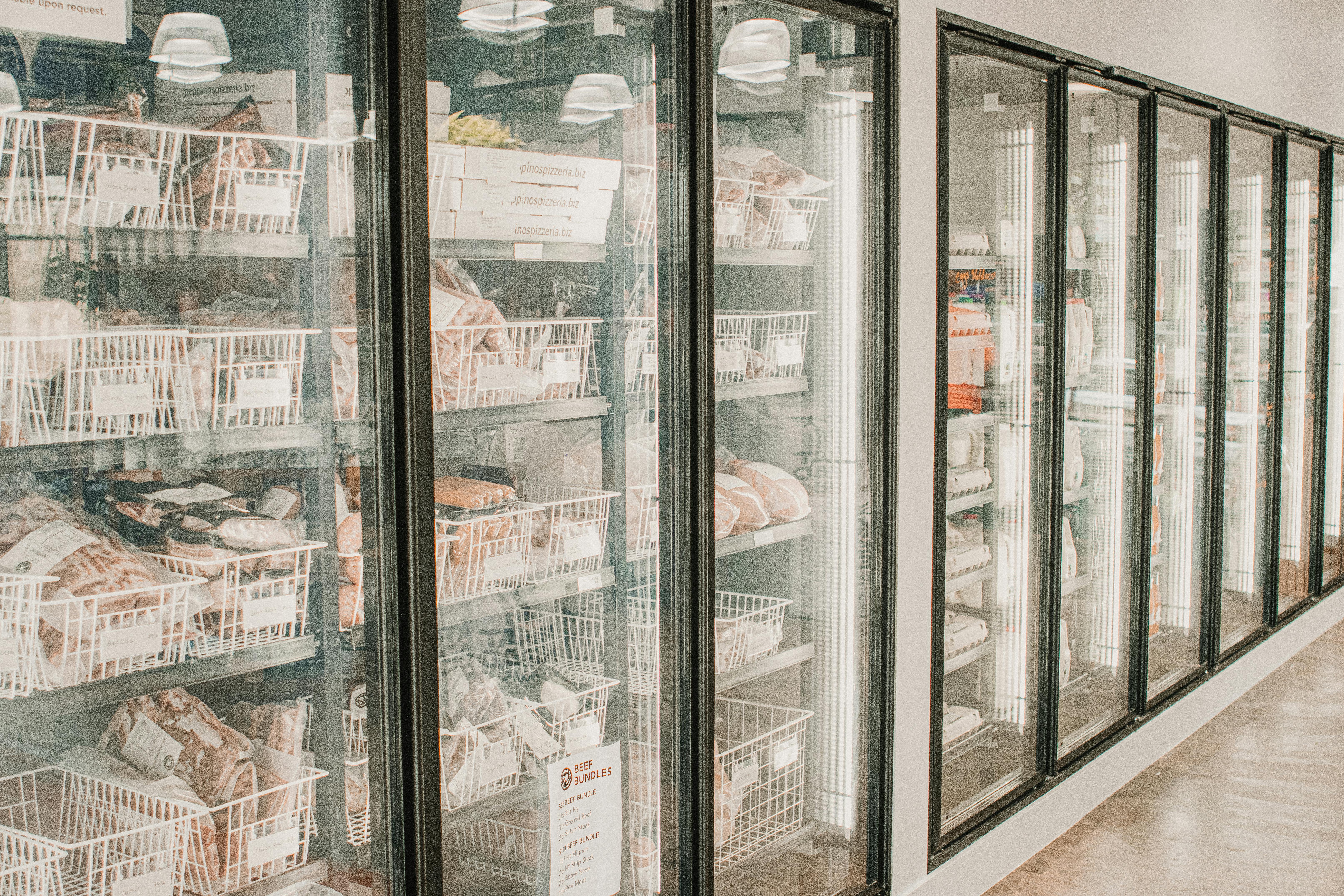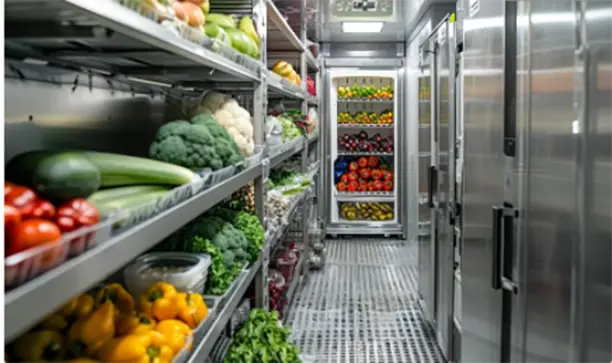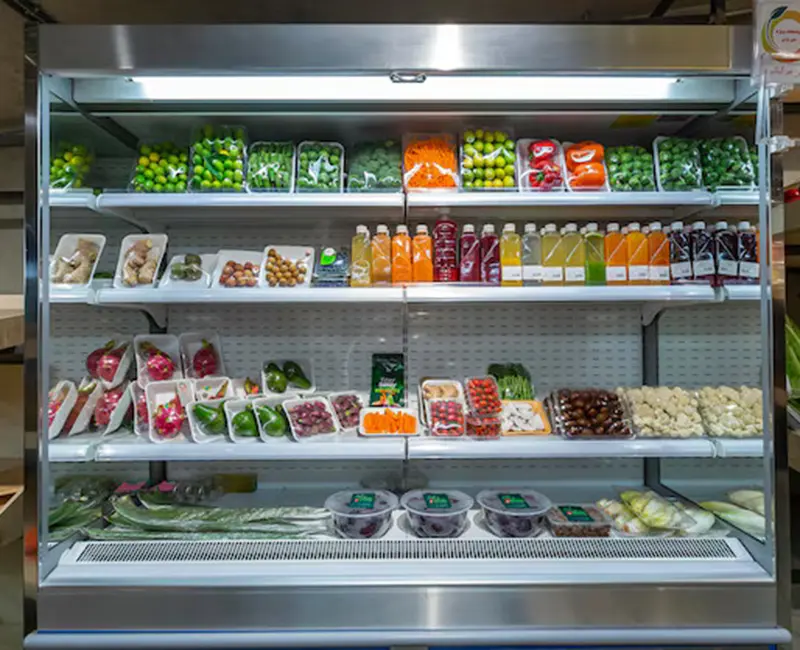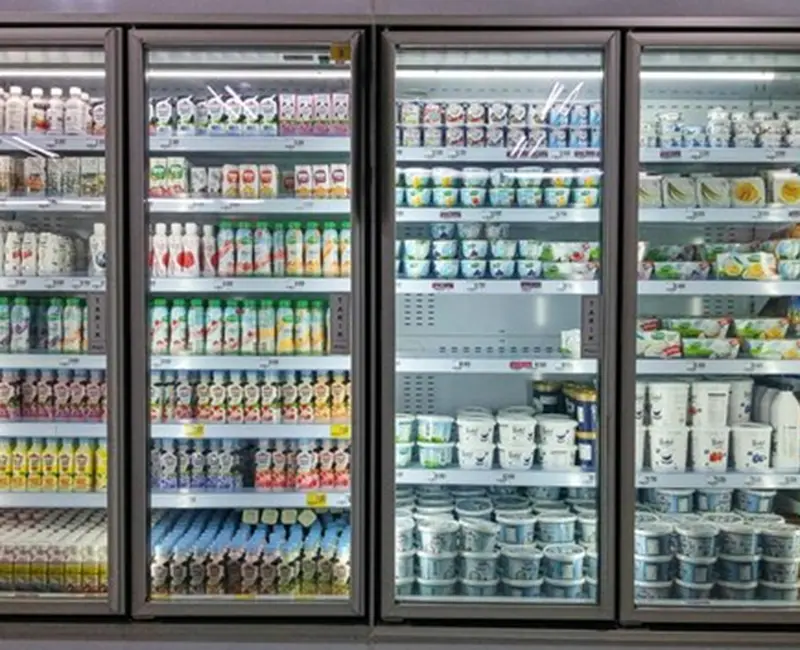How All-Copper Windings Are Revolutionizing Refrigeration Motor Efficiency
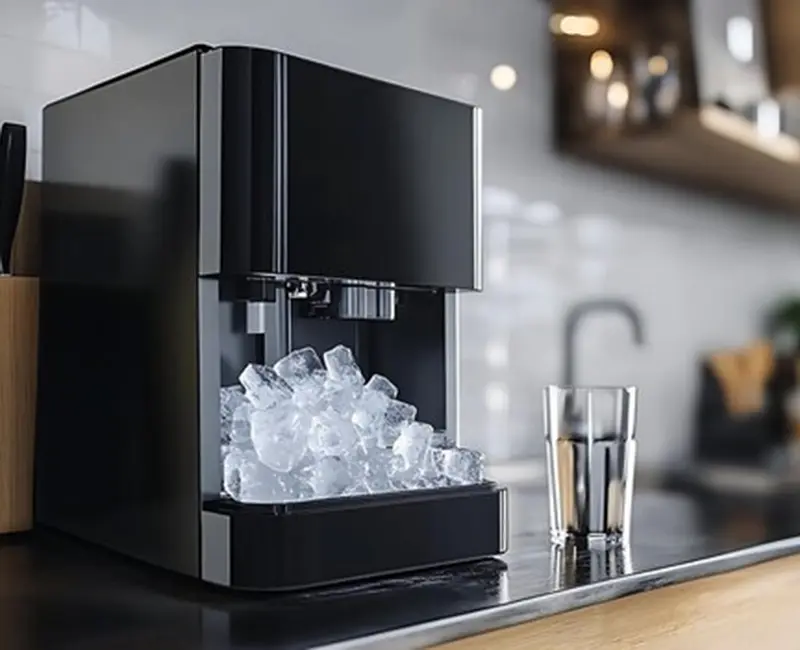
Refrigeration motors are evolving, and all-copper windings are leading this transformation. These windings minimize energy losses and maximize performance, making them a game-changer in sustainable cooling systems. Companies like Ningbo Senjun New Materials Co., Ltd. play a pivotal role in this progress.
- They specialize in producing wire tube condensers and copper aluminum fin heat exchangers, which enhance refrigeration efficiency.
- Their products, designed for durability and reliability, support applications ranging from medical cooling to food storage.
- By collaborating with engineers and leveraging advanced manufacturing techniques, they deliver innovative refrigeration parts that meet modern sustainability goals.
This commitment to quality and innovation ensures that all-copper windings refrigeration motors remain at the forefront of energy-efficient technology.
Key Takeaways
- Using all-copper windings in motors saves energy and improves efficiency.
- Copper conducts electricity and heat better than materials like aluminum.
- Choosing all-copper windings lowers costs and helps the environment.
- Copper parts last longer and need less fixing, staying reliable.
- New refrigeration tech matches well with copper, making a greener future.
The Importance of Motor Efficiency in Refrigeration
Why Efficiency Matters
Motor efficiency plays a critical role in refrigeration systems. I have seen how inefficient motors can lead to significant energy waste and environmental harm. Refrigeration motors consume a substantial amount of electricity, and when they operate inefficiently, the impact multiplies.
- Inefficient motors increase energy consumption, which raises carbon emissions.
- Refrigerant leakage from these systems contributes to direct emissions, while indirect emissions result from the electricity used to power them.
- Enhancing motor efficiency reduces energy usage, lowers carbon emissions, and minimizes refrigerant leakage.
This is where all-copper windings refrigeration motors excel. Their superior conductivity ensures minimal energy loss, making them a sustainable choice for modern refrigeration systems. Companies like Ningbo Senjun New Materials Co., Ltd. are driving this change by developing advanced components that improve motor efficiency. Their expertise in wire tube condensers and copper aluminum fin heat exchangers supports a wide range of applications, from medical cooling to food storage.
Key Factors Influencing Motor Performance
Several factors determine how well a refrigeration motor performs. I have observed that regular monitoring and maintenance are essential to keep motors running efficiently. Overheating can damage components, so maintaining optimal motor temperature is crucial.
The load placed on a motor also affects its performance. Overloading increases energy consumption and risks failure, while underloading reduces efficiency. Another critical factor is the power factor, which measures how effectively a motor converts electrical power into mechanical power. A low power factor leads to higher energy consumption and lower efficiency.
By addressing these factors, we can ensure that refrigeration motors operate at peak performance. All-copper windings refrigeration motors, with their excellent thermal conductivity and durability, provide a reliable solution to these challenges. Ningbo Senjun New Materials Co., Ltd. continues to innovate in this space, offering high-quality components that enhance motor performance and energy efficiency.
Unique Advantages of All-Copper Windings Refrigeration Motor
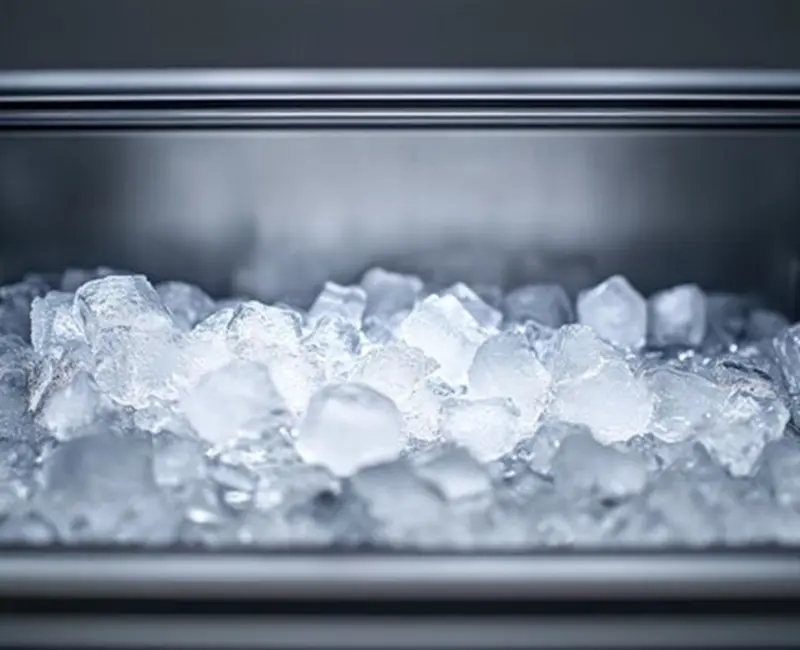
Superior Electrical Conductivity
Copper's exceptional electrical conductivity sets it apart as the ideal material for refrigeration motors. I have observed that its ability to minimize energy loss directly enhances motor efficiency. Copper's electrical conductivity value, approximately (5.96 \times 10^7) S/m at room temperature, ensures optimal performance. Its low electrical resistance, around (1.68 \times 10^{-8}\Omega⋅m), further reduces energy loss, even in long-distance applications.
| Property | Description |
|---|---|
| Electrical Conductivity Value | Copper’s electrical conductivity is approximately (5.96 \times 10^7) S/m at room temperature, allowing minimal energy loss. |
| Low Electrical Resistance | With a resistivity of about (1.68 \times 10^{-8}\Omega⋅m), copper minimizes energy loss, especially in long-distance applications. |
| Electric Motors and Transformers | Copper’s low resistance enhances motor performance by generating essential magnetic fields and ensuring minimal energy loss in transformers. |
Compared to alternative materials like aluminum, copper offers unmatched efficiency. Aluminum's resistivity is about 1.64 times higher than copper, making it less effective at conducting electricity. Motors using aluminum windings require larger cross-sections to achieve the same conductance, which increases their size and reduces efficiency. This is why all-copper windings refrigeration motors are the preferred choice for high-performance systems.
Enhanced Durability and Longevity
Durability is a critical factor in refrigeration motors, and copper excels in this area. I have seen how copper's resistance to wear and corrosion ensures a longer lifespan for motors. This durability reduces maintenance costs and downtime, making it a cost-effective solution for commercial and industrial applications.
Ningbo Senjun New Materials Co., Ltd. incorporates copper into its wire tube condensers and copper aluminum fin heat exchangers to enhance the durability of refrigeration systems. Their commitment to quality ensures that these components withstand the rigors of daily use, providing reliable performance over time. This focus on longevity aligns with the growing demand for sustainable and efficient refrigeration solutions.
Thermal Conductivity and Heat Management
Effective heat management is essential for maintaining the performance and reliability of refrigeration motors. Copper's high thermal conductivity makes it an indispensable material in this regard. It facilitates rapid heat dissipation, preventing overheating and ensuring consistent motor operation.
- Copper’s excellent conductivity makes it essential for electrical and electronic systems.
- It is extensively used in transformers and motors to manage heat, enhancing performance and longevity.
- In heat exchangers and cooling systems, copper's high thermal conductivity is ideal for rapid cooling in refrigeration units.
Better heat management has far-reaching implications for refrigeration systems. Advanced heat exchangers, like those developed by Ningbo Senjun New Materials Co., Ltd., optimize thermal transfer, reducing energy consumption and operational costs. This not only enhances sustainability by lowering carbon emissions but also improves system reliability. By integrating copper into their designs, Senjun ensures that their products meet the highest standards of efficiency and performance.
Comparing All-Copper Windings to Alternative Materials
Copper vs. Aluminum Windings
When comparing copper and aluminum windings, I find that copper consistently outperforms aluminum in key areas. Copper's higher conductivity ensures better energy efficiency, while aluminum requires larger cross-sections to achieve similar performance. This difference directly impacts motor size and design.
| Feature | Copper Windings | Aluminum Windings |
|---|---|---|
| Conductivity | Higher conductivity | Lower conductivity, requires larger cross-section |
| Connection Methods | Standard connections | Requires high-pressure piercing connectors |
| Efficiency | Generally more efficient | Can match efficiency but may not be economically feasible |
| Volume | Smaller volume for equivalent performance | Larger volume due to larger wire diameter |
| Reliability | High reliability | Improved reliability with proper connections |
| Application Suitability | Suitable for all applications | Acceptable for intermittent use |
While aluminum may reduce initial material costs, its lower conductivity and larger volume requirements often make it less practical for high-performance refrigeration systems. All-Copper Windings Refrigeration Motors, like those supported by Ningbo Senjun New Materials Co., Ltd., offer unmatched reliability and efficiency, making them the preferred choice for sustainable cooling solutions.
Copper vs. Emerging Technologies
Emerging technologies are exploring alternatives to copper windings, but I believe copper remains indispensable for many applications. Some of these innovations include:
- Reluctance Motors: These use steel rotors to minimize copper usage.
- Hairpin Winding Technology: This method enhances space efficiency with square or rectangular wires.
- Axial Flux Motors: Known for high power density, these motors reduce copper demand per kW of power.
- Switched Reluctance Motors: These aim to improve performance while reducing copper content.
Despite these advancements, copper's superior conductivity and recyclability make it a sustainable and efficient choice. Ningbo Senjun New Materials Co., Ltd. continues to leverage copper's unique properties in their wire tube condensers and copper aluminum fin heat exchangers, ensuring optimal performance across various refrigeration systems.
Environmental and Economic Benefits
Copper offers significant environmental and economic advantages. Its high conductivity reduces energy consumption, lowering operational costs and carbon emissions. Unlike many materials, copper can be recycled indefinitely without losing its properties, supporting a circular economy. This makes it a sustainable choice for industries prioritizing eco-friendly solutions.
Economically, while copper's upfront cost is higher than aluminum, its efficiency and durability often result in lower long-term expenses. Aluminum may appear cost-effective initially, but its larger wire sizes and additional design requirements can offset these savings. By integrating copper into their products, Ningbo Senjun New Materials Co., Ltd. ensures both environmental responsibility and economic value for their clients.
Real-World Applications of All-Copper Windings Refrigeration Motor
Commercial Refrigeration Success Stories
I have seen firsthand how all-copper windings refrigeration motors have transformed commercial refrigeration. Businesses in the food and beverage industry rely heavily on refrigeration systems to preserve perishable goods. These motors provide unmatched efficiency, reducing energy costs and ensuring consistent cooling performance. For example, supermarkets and convenience stores benefit from the enhanced durability of copper windings, which minimize downtime and maintenance expenses.
Ningbo Senjun New Materials Co., Ltd. plays a vital role in this success. Their wire tube condensers and copper aluminum fin heat exchangers are integral to refrigeration systems used in display cabinets and wine coolers. These components ensure optimal heat exchange, improving the overall efficiency of refrigeration units. By integrating all-copper windings, businesses can achieve reliable performance while meeting sustainability goals.
Industrial Applications and Energy Savings
In industrial settings, energy efficiency is paramount. I have observed how factories and warehouses use refrigeration systems to store raw materials and finished products. All-copper windings refrigeration motors excel in these environments due to their superior thermal conductivity and durability. They handle heavy workloads while maintaining consistent performance, which reduces energy consumption and operational costs.
Senjun’s innovative components, such as those used in medical ultra-low temperature refrigerators and ice makers, further enhance energy savings. These systems demand precise temperature control and reliability, which copper windings deliver. By adopting these advanced technologies, industries can achieve significant energy savings while reducing their environmental footprint.
Future Trends in Refrigeration Technology
The future of refrigeration technology is exciting, and I believe all-copper windings will play a central role. Several trends are shaping the industry:
- Increasing use of small-diameter copper tubes to improve efficiency and sustainability.
- Transition to natural refrigerants like CO2 and R290 to reduce environmental impact.
- Growing emphasis on energy efficiency to comply with stricter environmental regulations.
These advancements align perfectly with the capabilities of all-copper windings refrigeration motors. Senjun continues to innovate by incorporating these trends into their products, such as dehumidifiers and freezers. Their commitment to research and development ensures that their solutions remain at the forefront of sustainable refrigeration technology.
All-Copper Windings Refrigeration Motor technology is reshaping the refrigeration industry by delivering unmatched efficiency, durability, and thermal performance. Companies like Ningbo Senjun New Materials Co., Ltd. are driving this transformation through their innovative products, such as copper aluminum fin heat exchangers. These advanced components enhance energy efficiency, reduce waste, and support sustainability goals.
The industry is also witnessing a shift toward small-diameter copper tubes, which improve system performance while aligning with eco-friendly practices. Government policies further encourage the adoption of energy-efficient technologies by setting clear targets and fostering collaboration. As these trends continue, all-copper windings will remain a cornerstone of sustainable refrigeration, ensuring a greener future for generations to come.
FAQ
What makes all-copper windings superior to other materials in refrigeration motors?
Copper's high electrical and thermal conductivity ensures minimal energy loss and efficient heat management. Its durability reduces maintenance needs, extending motor lifespan. I’ve seen how Ningbo Senjun New Materials Co., Ltd. integrates copper into their components, like wire tube condensers, to enhance refrigeration system performance.
How do all-copper windings contribute to sustainability?
Copper's recyclability and efficiency make it an eco-friendly choice. It reduces energy consumption and carbon emissions. By using copper in their products, Ningbo Senjun New Materials Co., Ltd. supports sustainable practices while delivering high-performance refrigeration solutions.
Are all-copper windings suitable for industrial refrigeration systems?
Yes, they excel in industrial applications. Copper's durability and heat management capabilities handle heavy workloads efficiently. I’ve observed how Senjun’s copper aluminum fin heat exchangers, used in medical ultra-low temperature refrigerators and ice makers, ensure reliable performance in demanding environments.
How does Ningbo Senjun New Materials Co., Ltd. innovate in refrigeration technology?
Senjun focuses on research and development to create advanced components like wire tube condensers and copper aluminum fin heat exchangers. Their expertise ensures optimal energy efficiency and durability, meeting the needs of modern refrigeration systems across industries.
What are the economic benefits of using all-copper windings?
Copper's efficiency reduces operational costs over time. While its initial cost is higher, its durability and recyclability lower long-term expenses. Senjun’s commitment to quality ensures their copper-based products deliver both economic value and environmental benefits.









